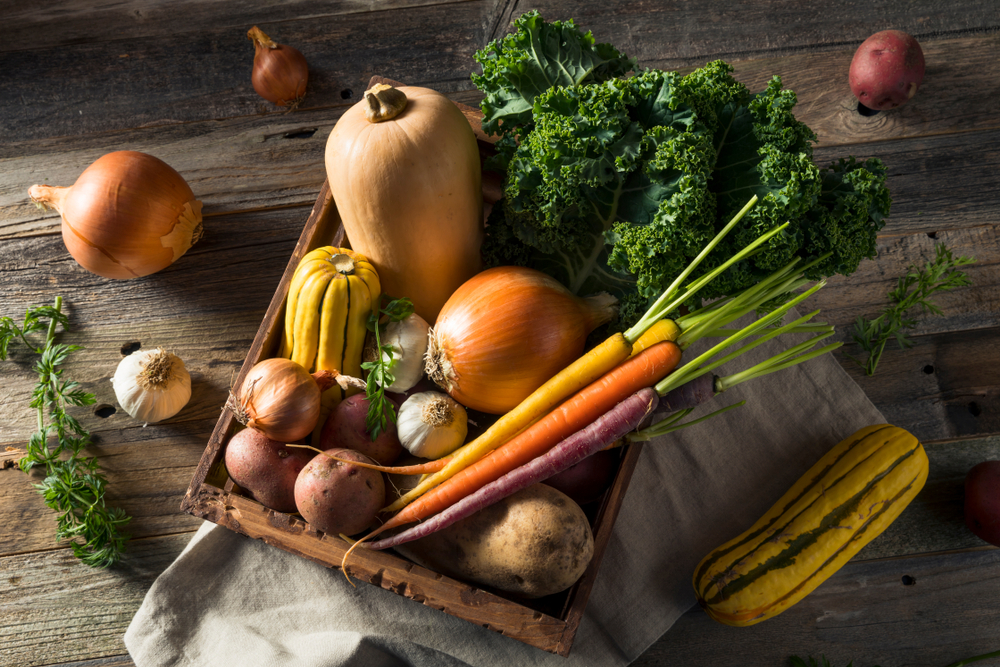Load Up on the Best Seasonal Produce This Winter

Despite the drop-in temperature outside, there are still a ton of fresh fruit and vegetables that are available during the winter season! Did you know that there are many benefits to eating produce that is in season? Eating fruits and vegetables that are in season provides richer flavor, higher nutrients, and lower costs.
Winter veggies are hearty and full of flavor. They can be prepared and cooked in so many different ways. They can be added to a winter salad, or added to soups, stews, and crock pot meals. Eating winter fruit will give you a great immunity boost, which is especially important during the cold and flu season! They are beneficial since they have high nutritional value, vitamins, and antioxidants. Try adding winter fruits to salads, yogurt parfaits, and desserts.
Here’s what you should be looking for at the grocery store this winter season:
Cabbage: this hearty winter leafy green can add crunch to salads, slaws, and sandwiches. Raw cabbage has a naturally peppery flavor, and some varieties have red or purple leaves. It is composed of 90% water and is an excellent source of vitamins A, C, and K.
Winter squash: butternut and acorn squash are at their prime during the winter. Don’t forget to save the seeds that you scoop out! These seeds are a healthy and delicious snack food, simply lay them in a single layer on a baking sheet and bake at 350 degrees for about 15-20 minutes.
Brussel sprouts: make a delicious addition to your lunchtime salad or dinnertime side. They will stay fresh in the fridge for weeks! Toss halved sprouts with olive oil and roast until crispy and brown. They can even be air-fried or boiled as well.
Parsnips: sweeter than carrots, easy to prepare, and have a long shelf life. Smaller ones may be more flavorful and tender. They develop their full flavor after exposure to extended periods of cooler weather, which makes them a cold-weather treat!
Oranges and Tangerines: Both fruits can add brightness to winter eating. They can be added as a natural sweetness to salads and sliced oranges make a great snack. Oranges are an excellent source of vitamin C and a good source of fiber and folate.
Grapefruit: Use this high vitamin C fruit in your winter salads for a zesty immune system boost. Choose grapefruits with thin, smooth, firm, blemish free skins that are heavy for their size.
Kiwis: winter is the best season for this juicy fruit. To enjoy the fresh taste, cut the kiwi in half and use a spoon to scoop out the fruit. It can also be used in smoothies and parfaits. The skin is actually edible, so try eating the skin too, it’s an excellent source of fiber!
Pears: sweet and juicy fruit with mild flavor. Eat whole or cut into pieces after removing the stem, core, and seeds. You can even make them in the oven and add cinnamon for a sweet dessert! Refrigerate pears to prevent them from ripening too fast. Pears also taste best when chilled.
Share with us how you have been eating these seasonal fruits and vegetables during the winter season!

